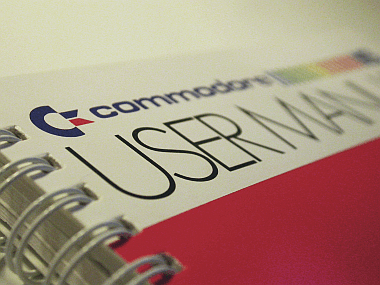That’s when it hit me: I need a user manual for my life! I have a password manager, personal information manger, Treo, online todo list, reminder system, Moleskine notebook — but nowhere had I written down the step-by-step instructions for making this payment. Nor, I realized, did I have a record of most of the tasks I do routinely. Instead, I remember the first step (visit a website, call someone, open a program. etc.) and rely on the cues presented. If I can’t remember how to do something, I work at it until I figure it out. How much time do you think I’ve wasted trying to remember simple stuff, like the steps it takes to process photos I’ve taken to print them out, or how to pay my quarterly tax payments, or how to accept new contributors to the Lifehack.org pool and get them up to speed? What I should have, I realized, is a single place where these processes, from the crucial to the mundane, were recorded. There are a few good reasons to have something like this:
What would be in it?
What would I put in my user manual? Quite a few things come to mind, including:
The tools, both online and off, I use to accept, process, and make payments.
Banking processes — how I pay bills and receive payments Bookkeeping tools — How I keep track of my accounts How I add clients and advertisers into my system
Google Adwords and Adsense processes — how I identify keywords, how I set up campaigns, how I add new ads to my sites How I produce a podcast — my local and online workflows for recording, uploading, and distributing my podcasts
Renewing my car registration Reactivating my health insurance (I teach as a contract employee so I have to reactivate it every time I renew my contract) Putting a new syllabus or online course together Writing an academic paper And so on…
What would it look like?
Since part of the usefulness of a personal user manual would be the ability to share it with other people, especially if I were incapacitated in some way, using any fancy software tool or online application seems out of the question. The best bet would be to keep a single file in a standard word-processing format (Word .doc, .rtf) on my computer, and an up-to-date hard copy printed out in a binder. Finding information in a paper copy might be a hassle, though — a clear table of contents seems essential, and a clear organizing schema. Pages — at least within a section — should follow templates, with the same kinds of information in the same place on each page. I’m torn between two organizational schemas, though: should it be organized by topic (e.g. paying bills, writing articles, organizing courses, etc.) or by regularity (things I do every day, things I do weekly, things I do monthly, quarterly, annually, etc.)? Maybe both, actually — the point is to be as perfectly useful to someone else as to myself, and who knows how much direction I might be able to give or what conditions it might need to be used under?
Putting it together
I hear you out there, thinking “That sounds like an awful lot of work!” And it does. What I’m thinking, though, is that once a template is created, adding new pages would be pretty easy. And rather than sitting down and figuring everything out, it might be more fruitful to keep the file open and document processes as you perform them in the course of your regular schedule. It might take a few extra minutes per task for a couple of days, but by the end of a week, you’d have most of the tasks you do most often fully documented. Add the monthlies at the end of the month, and add the less regular stuff as it occurs to you, or when you can set aside an hour or two to think about it. Sound crazy? Maybe it is crazy. And yet I can’t help but think that so many of the organizations I’ve worked for — universities, foundations, museums, the military, corporations — have shelves full of such documentation, from Standard Operating Procedures for various tasks to training manuals to grant-writing templates. If you want to make sure that a certain standard is reached every time you do something, you need to figure out and document that standard. I may never open my personal user manual once it’s finished — but it will be nice to know I could. It will be nice to know that if I’m ever hospitalized, my partner can make sure that the people that need to know, know, and that at least the minimal requirements of my business could be taken care of. It will be nice to know that tasks I do very rarely are documented somewhere, so I don’t procrastinate by putting a “figure out how to do x” entry onto my todo list — and then procrastinate that task since I don’t remember how to find out how to find out! What about you? What kind of information would you put into your personal user manual?
